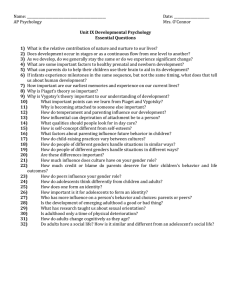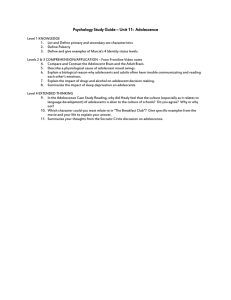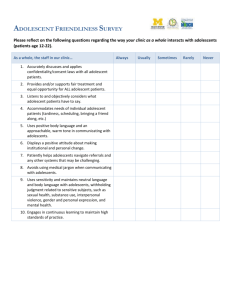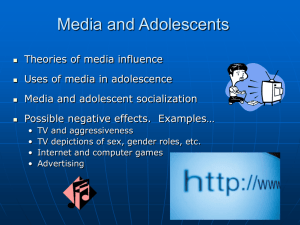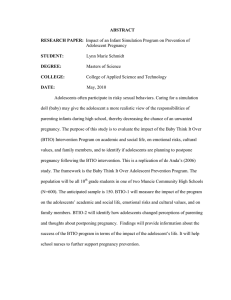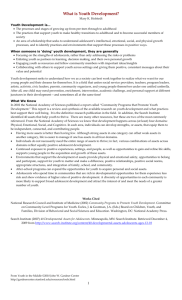16-224b How Understanding the Teenage Brain can Improve your Clinical... Adolescents and their Families – 6 Hour Seminar
advertisement
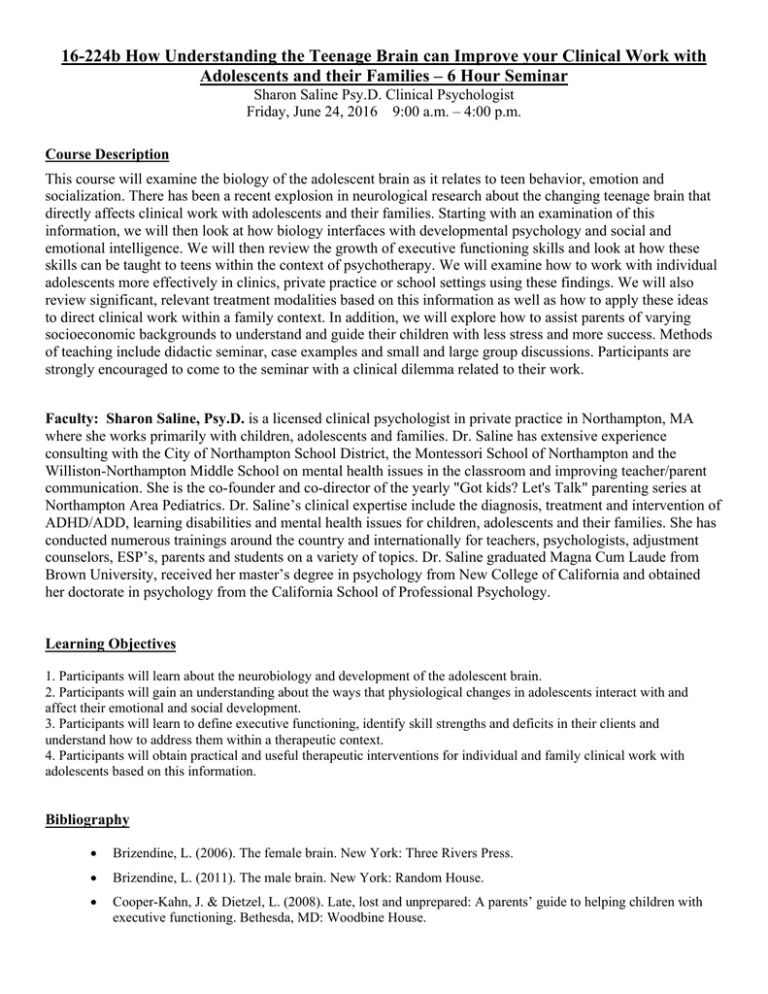
16-224b How Understanding the Teenage Brain can Improve your Clinical Work with Adolescents and their Families – 6 Hour Seminar Sharon Saline Psy.D. Clinical Psychologist Friday, June 24, 2016 9:00 a.m. – 4:00 p.m. Course Description This course will examine the biology of the adolescent brain as it relates to teen behavior, emotion and socialization. There has been a recent explosion in neurological research about the changing teenage brain that directly affects clinical work with adolescents and their families. Starting with an examination of this information, we will then look at how biology interfaces with developmental psychology and social and emotional intelligence. We will then review the growth of executive functioning skills and look at how these skills can be taught to teens within the context of psychotherapy. We will examine how to work with individual adolescents more effectively in clinics, private practice or school settings using these findings. We will also review significant, relevant treatment modalities based on this information as well as how to apply these ideas to direct clinical work within a family context. In addition, we will explore how to assist parents of varying socioeconomic backgrounds to understand and guide their children with less stress and more success. Methods of teaching include didactic seminar, case examples and small and large group discussions. Participants are strongly encouraged to come to the seminar with a clinical dilemma related to their work. Faculty: Sharon Saline, Psy.D. is a licensed clinical psychologist in private practice in Northampton, MA where she works primarily with children, adolescents and families. Dr. Saline has extensive experience consulting with the City of Northampton School District, the Montessori School of Northampton and the Williston-Northampton Middle School on mental health issues in the classroom and improving teacher/parent communication. She is the co-founder and co-director of the yearly "Got kids? Let's Talk" parenting series at Northampton Area Pediatrics. Dr. Saline’s clinical expertise include the diagnosis, treatment and intervention of ADHD/ADD, learning disabilities and mental health issues for children, adolescents and their families. She has conducted numerous trainings around the country and internationally for teachers, psychologists, adjustment counselors, ESP’s, parents and students on a variety of topics. Dr. Saline graduated Magna Cum Laude from Brown University, received her master’s degree in psychology from New College of California and obtained her doctorate in psychology from the California School of Professional Psychology. Learning Objectives 1. Participants will learn about the neurobiology and development of the adolescent brain. 2. Participants will gain an understanding about the ways that physiological changes in adolescents interact with and affect their emotional and social development. 3. Participants will learn to define executive functioning, identify skill strengths and deficits in their clients and understand how to address them within a therapeutic context. 4. Participants will obtain practical and useful therapeutic interventions for individual and family clinical work with adolescents based on this information. Bibliography Brizendine, L. (2006). The female brain. New York: Three Rivers Press. Brizendine, L. (2011). The male brain. New York: Random House. Cooper-Kahn, J. & Dietzel, L. (2008). Late, lost and unprepared: A parents’ guide to helping children with executive functioning. Bethesda, MD: Woodbine House. Dawson, P. & Guare, R. (2010). Executive skills in children and adolescents: A practical guide to assessment and intervention (second edition). New York: Guilford. Dawson, P. & Guare, R. (2009). Smart but scattered: The revolutionary executive skills” approach to helping kids reach their potential. New York: Guilford. Miller, P. H. (2011). Theories of developmental psychology. Fifth edition. New York: Worth. Perl, E. (2008). Psycholtherapy with adolescent girls and young women: Fostering autonomy through attachment. New York: Guilford. Sax, L. (2007). Boys adrift: The five factors driving the growing epidemic of unmotivated boys and underachieving young men. New York: Basic Books. Strauch, B. (2003). The primal brain: What new discoveries about the teenage brain tell us about our kids. New York: Doubleday. Straus, M. (2007). Adolescent girls in crisis: Intervention and hope. New York: W. W. Norton. Taffel, R. (2009). Childhood unbound: The powerful new parenting approach that gives our 21st century kids the authority, love and listening they need to thrive. New York: Free Press. Wolf, A.E. (2011). I’d listen to my parents if they’d just shut up: What to say and not say when parenting teens. New York: Harper.

